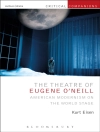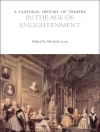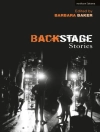The Futurist opera Victory over the Sun, first staged in 1913 in St Petersburg, was a key event of the Russian avant-garde, notorious for its libretto, its unconventional score and its pioneering abstract sets and costumes designed by Kazimir Malevich. The iconic importance of Victory over the Sun as a theatrical event is universally acknowledged.
This volume brings together the first fully annotated translation of the libretto of this ‘anti-opera’ and other important primary source materials, including the score, the set and costume designs and contemporary newspaper reviews. The second part of the volume provides a wide-ranging collection of interpretive essays which explore the artistic, literary and musical dimensions of the staging, its theatrical and historical context, its relationship to Italian Futurism, and its position within the Russian modernist movement.
You can read more about the Pushkin House event on 22 November 2012 on the Russian Art and Culture website by following this link http:// www.russianartandculture.com/victory-over-sun-book-launch-pushkin-house/ (will open in a new window).
And you can see and hear more in Alexander Kan’s report on the BBC Russian site by following this link http://www.bbc.co.uk/russian/multimedia/2012/11/121127_futuristic_dinner.shtml (will open in a new window).
In 1913, the year in which the Romanovs celebrated their tercentenary, the premieres of two revolutionary theatrical events brought Russian artists to the forefront of the European avant-garde. With its nonsensical ‘trans-sense’ libretto by Aleksei Kruchenykh and Velimir Khlebnikov, experimental score by Mikhail Matiushin and pioneering abstract sets and costumes by Kazimir Malevich, the Futurist opera Victory over the Sun may be compared in terms of its radical assault on artistic convention to Igor Stravinsky’s ballet The Rite of Spring.
This interdisciplinary volume brings together a distinguished team of international scholars to discuss the artistic significance of this epoch-making ‘anti-opera’, which is now recognised as a key event of avant-garde cultural production, and a turning point in stage history.
The book offers new insight into the theatre practice and history of Russian Futurist performance, which, to date, has received little attention from theatre scholars despite its influence on the development of European drama in the twentieth century.
As well as an annotated translation of the libretto, the book includes reproductions of the score and contemporary newspaper reviews.
Illustrated throughout, and with a colour plate section containing twenty-seven colour images of costume designs, posters and other work by the abstract artist Kazimir Malevich.
Jadual kandungan
Victory Over the Sun: The World’s First Futurist Opera
List of Illustrations
Acknowledgements
About the Text
About the contributors
Introduction – Rosamund Bartlett and Sarah Dadswell
Texts and Scores
i. Biographies of the Librettists, Set Designer and Composer
ii. Annotated translation of the libretto of Victory Over the Sun (translated by Rosamund Bartlett)
iii. Pobeda nad solntsem: facsimile of the original 1913 Russian publication, incorporating some fragments by Matiushin
iv. Maria Ender’s transcription of Matiushin’s original score for Victory Over the Sun
v. Contemporary reviews
vi. ‘About the Opera Victory Over the Sun’, by Aleksei Kruchenykh
Essays
The Russian Cubo-Futurist Opera Victory Over the Sun: Aleksei Kruchenykh’s Alogical Creation, Michaela Böhmig
Entertainment and Enlightenment in Late Imperial Russian Theatre, Murray Frame
On the Eve: the Russian Stage 1911–1914, Laurence Senelick
Victories over the Sun: the Drama of the Russian Futurists, Robert Leach
Darkness and Light: Solar Eclipse as a Cubo-Futurist Metaphor John E. Bowlt
Kazimir Malevich and the Designs for Victory Over the Sun, Christina Lodder
Victory over the Sun – the Music, Catja Gaebel
“Be a Spectator with a Large Ear”: Victory over the Sun as Public Laboratory Experiment for Mikhail Matiushin’s Theories of Colour Vision, Margareta Tillberg
Branding the Futurists, Sarah Dadswell
The Collision of Italian and Russian Futurism: Marinetti’s Visit to Russia, Aurora Egidio
Burnt by the Sun: the Transmutation of Performativity, Theatricality, and Framing in the Late Work of Kazimir Malevich, Anna Wexler-Katsnelson
A Modern Victory: Reflections on the 1999 Staging, Julia Hollander, Director and Jeremy Arden, Composer, in conversation with Sarah Dadswell
Notes
Selected Bibliography
Index
Mengenai Pengarang
Robert Leach has worked as a journalist, school teacher, University lecturer and theatre director. He has acted professionally in USA and directed in Moscow, has taught acting at the Cumbria Institute for the Arts and taught drama at the universities of Edinburgh and Birmingham.He is a published playwright and has adapted work for the contemporary stage. His version of the Medieval mystery plays was performed in Carlisle Cathedral in 2007 and he was responsible for creating The Lichfield Mysteries, a triennial event and one of the biggest community arts events in Europe. He has also published several theatre theory and history books, including Makers of Modern Theatre (Routledge, 2004) and Theatre Workshop: Joan Littlewood and the Making of Modern British Theatre (UEP, 2006) which was shortlisted for the Theatre Book of the Year in 2006. The Short, Astonishing History of the National Theatre of Scotland was published in New Theatre Quarterly in summer 2007.Three collections of his poetry have been published by Dionysia Press, Edinburgh, and his work has appeared in various anthologies and magazines. His epic travelogue in verse and prose, The Journey to Mount Kailash, about a journey through India, was published in 2010 and he is a previous Chair of the Borders Writers Forum.












